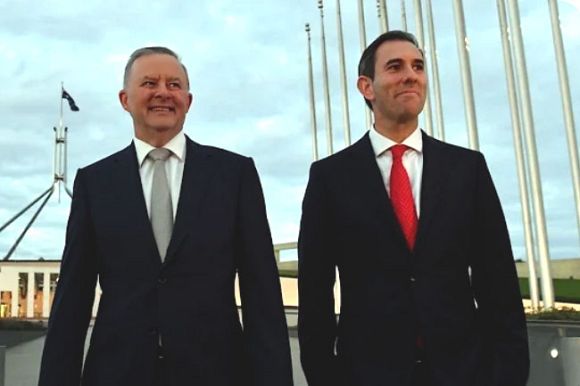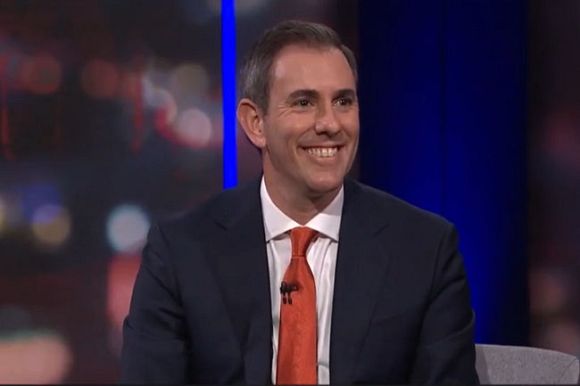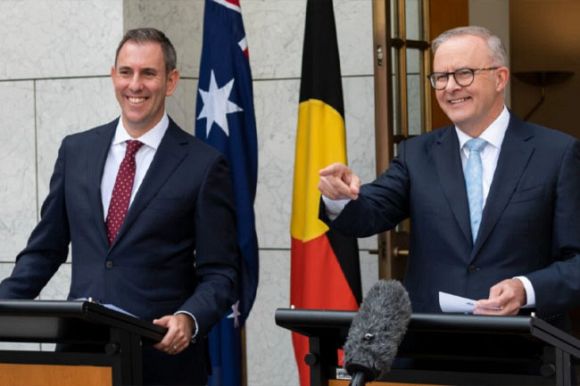‘Economic management’ an election winner for Labor

Having repaired the damage done by the Coalition to the Australian economy, the Labor Party’s chances of re-election are looking promising, writes Stephen Koukoulas.
TREASURER JIM CHALMERS and economic management are set to be the aces in the Labor Party’s pack when campaigning for the next election gets fully underway. That election is likely to be held in the first half of 2025, although there is some chatter that a late 2024 election could be called if Prime Minister Anthony Albanese thinks his chances of winning at that time are strong.
For many decades, Labor has been a distant second to the Coalition in public opinion polling on “who’s the better economic manager”. The Coalition has been able to convince enough of the electorate that Labor taxed more than the Coalition, ran larger budget deficits, accumulated more government debt, presided over higher interest rates and was not good at driving growth.
This was despite the fact that these claims were overwhelmingly wrong.
The awful record on economic and budget management of the Abbott/Turnbull/Morrison Coalition Government from 2013 to 2022 and the early success of Labor since it took office in May 2022 is likely to see public opinion tilt solidly towards Labor, which will be a critical element in helping it get re-elected.
The economy is shaping up as a campaigning plus and election winner for Labor, and Treasurer Chalmers will have the task of campaigning on a mix of macroeconomic and budget management outcomes that will show Labor to be better at managing the economy than the Coalition.
What is good economic management?
When it comes to the role of the government in managing the economy, a wide range of factors feed into the narrative and perceptions of “better economic management”.
It is different for each voter and ranges from assessments of how the government of the day influences changes in their personal financial position, tax, the provision of public services, the level of interest rates, unemployment, wages, the budget position and level of government debt.
Each of these has merit as a benchmark for policy competence, even when the significance of each factor can and does change according to the extent to which these variables are impacting voters or their perceptions about economic management at each election time.
For example, when the budget deficit is large and rising and is feeding into a rising level of government debt, fiscal management is likely to be more front and centre in voters’ minds than when the budget is broadly balanced and government debt is steady. So, too, with extremes in the unemployment rate or wage growth.
As noted recently, Treasurer Chalmers and Finance Minister Katy Gallagher have taken huge strides in repairing the budget and stemming the rise in government debt. This is a political virtue.
That said, the budget is facing challenges including slower growth and falling commodity prices, especially for iron ore. If sustained, these will have a negative impact on government tax receipts, but there seems to be enough margin at this stage for a small budget surplus in FY2023-24.
That will be surplus “two from two” for Labor.
It also means the level of government debt is broadly stable in dollar terms and is falling as a proportion of GDP. It will peak well below the $1.2 trillion that was flagged in Liberal Treasurer Josh Frydenberg’s last budget in March 2022, thanks to Labor’s tight grip on spending and saving the revenue that a stronger economy has delivered.
Furthermore, Labor can campaign on the fact that since the middle of 2023, wage growth has been above the inflation rate, delivering increases in real wages.
And there is more. Revamped Stage 3 income tax cuts will hit workers’ bank accounts during July 2024, a development which will ease cost-of-living pressures.
The list gets even longer.
If the money markets are right, the current economic dynamics will see falling interest rates from around mid-2024, which will ease cost-of-living pressures for mortgage holders and small businesses with overdrafts and loans.
Not only is this “big picture” view of the economy and policy a good one for Labor, but it will place enormous pressure on Shadow Treasurer Angus Taylor and Leader of the Opposition Peter Dutton to come up with a credible economic alternative.
The Opposition will have trouble promising new spending or tax cuts without undermining the budget, adding to inflation pressure or hitting wage growth. It has nowhere to go.
The 14 May 2024 Budget
This background adds to the importance of the third budget of the Albanese Government, to be delivered by Chalmers on 14 May.
The Government must, at this stage, keep a tight rein on spending and revenue, ensuring a surplus, albeit a wafer-thin version. A second and potentially third budget surplus – after the nine deficits of the previous Coalition – will be a badge of honour that the electorate will respect.
Chalmers knows that he needs to keep the budget in a position that continues to take pressure off inflation and interest rates. When interest rates are cut later this year, he can rightly claim to have done the right thing in budget policy to help the Reserve Bank of Australia deliver easier monetary policy.
While a lot can and will happen to the economy in the year or so between now and polling day, the current economic outlook looks favourable for the Labor Government to have plenty of good news to campaign on.
It will need to tread carefully to ensure it does not derail this good news, especially on interest rates and the budget. But in Treasurer Jim Chalmers, there is every possibility it has a Treasurer who will do so and as a result, Labor has a strong chance of re-election at the next poll.
Stephen Koukoulas is an IA columnist and one of Australia’s leading economic visionaries, past Chief Economist of Citibank and Senior Economic Advisor to the Prime Minister.
Related Articles
Support independent journalism Subscribe to IA.










